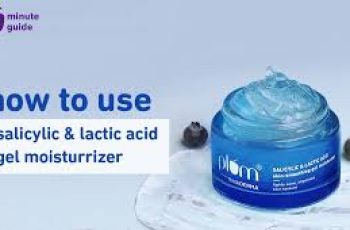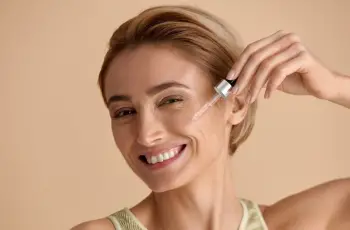
Cutaneous Lysate and Processed Skin Cell Proteins (PSPs) in Neocutis Skin Care: The Science Behind Youthful Skin
The skincare world has witnessed a revolution with the introduction of Processed Skin Cell Proteins, or PSPs.
Also called cutaneous lysate, these proteins have transformed anti-aging treatments by delivering real, science-backed benefits.
At the forefront of this innovation is the luxury brand Neocutis, which has built its reputation on harnessing the power of human fibroblasts to rejuvenate skin.
What Are Processed Skin Cell Proteins (PSPs)?
Processed Skin Cell Proteins are a special blend of growth factors and cytokines extracted from cultured human fibroblasts.
Fibroblasts are essential skin cells responsible for producing collagen and other vital molecules.
The unique process begins by taking a human skin biopsy, cultivating fibroblasts in a lab, and then harvesting the proteins these cells produce.
These proteins mimic natural skin repair mechanisms, helping to restore and maintain youthful skin.
Interestingly, a rumor suggests the original skin sample used to cultivate these fibroblasts came from the CEO’s child’s foreskin, though this has never been confirmed.
Regardless, the cultivation technique ensures a reliable source of these potent proteins.
On product labels, you will often see “cutaneous lysate,” which is the term Neocutis uses for these fibroblast-derived proteins.
The Role of Growth Factors in Skin Health
Growth factors are naturally occurring proteins that regulate cell growth, healing, and tissue regeneration.
In Neocutis products, cutaneous lysate contains several key growth factors that work synergistically to improve skin health:
Transforming Growth Factor-beta (TGF-β): Stimulates collagen production and skin repair.
Fibroblast Growth Factor (FGF): Supports cell growth and new blood vessel formation.
Platelet-Derived Growth Factor (PDGF): Enhances wound healing and tissue regeneration.
Vascular Endothelial Growth Factor (VEGF): Promotes blood vessel growth to nourish skin.
Interleukins (IL-6, IL-8, IL-10): Regulate immune responses and reduce inflammation.
Keratinocyte Growth Factors (KGF-1, KGF-2): Support skin cell renewal.
Together, these growth factors promote a healthier, more resilient skin barrier, helping to combat signs of aging.
How PSPs Benefit Your Skin
The true power of PSPs lies in their ability to stimulate your skin’s own regeneration processes. Here are the key benefits:
Collagen Restoration
Collagen is the protein that gives skin its strength and firmness. As we age, collagen production naturally declines, leading to sagging and wrinkles.
PSPs help jumpstart collagen synthesis, restoring skin’s structure and youthful elasticity.
Enhanced Hyaluronic Acid Production
Hyaluronic acid is critical for maintaining skin hydration. It attracts water molecules and locks moisture into the skin, making it look plump and smooth.
PSPs encourage skin cells to produce more hyaluronic acid, reducing dryness and fine lines.
Glycosaminoglycan Formation
Glycosaminoglycans, including hyaluronic acid, help maintain skin elasticity and moisture balance. By stimulating their production, PSPs improve skin texture and resilience, keeping skin supple and hydrated.
Reduction in Fine Lines and Wrinkles
With increased collagen and moisture, PSPs visibly reduce the appearance of fine lines and wrinkles. Skin looks smoother, firmer, and more radiant with consistent use.
Support for Skin Repair and Healing
PSPs replicate the natural proteins involved in wound healing. This means they can help repair sun damage, scars, and other skin imperfections, promoting a more even, youthful complexion.
Are PSP Products Suitable for All Skin Types?
One of the great advantages of PSP-containing products is their gentle nature. They are usually well tolerated, even by sensitive skin types. However, understanding your skin type can help maximize results.
Neocutis recommends taking a dermatologist-developed skin type quiz, like the Baumann Skin Type system, which categorizes skin into 16 types based on moisture, oiliness, sensitivity, and pigmentation tendencies.
Knowing your skin type can help you choose the right anti-aging products, including those with cutaneous lysate.
Safety and Side Effects of PSPs
Many users wonder about the safety of growth factors in skincare, especially regarding long-term effects and cancer risk.
Are There Any Side Effects?
PSPs are generally very safe. Clinical trials and real-world use over more than eight years have not reported significant side effects or adverse reactions.
Most users experience little to no irritation, even with sensitive skin.
Concerns About Growth Factors and Cancer
Because growth factors stimulate cell growth, some have raised concerns they could encourage cancer cell proliferation. However, there is no evidence linking topical PSP use to skin cancer.
The proteins act locally and are broken down quickly by the skin, reducing any risk.
The Environmental Working Group (EWG) assigns a favorable safety score of 1 to products containing cutaneous lysate, indicating low risk.
However, the term “cutaneous lysate” can refer to different types of lysates, so not all products carry the same safety rating.
Scientific Research Supporting Neocutis PSPs
Several independent studies have investigated the effectiveness of Neocutis PSP products in skin rejuvenation. Here are some key findings:
Case Report by Baumann et al. (2007)
In a study published in the Journal of Drugs in Dermatology, two participants with severe skin damage from photodynamic therapy applied Neocutis Bio-restorative Skin Cream twice daily.
Within a week, their skin showed remarkable healing and restored normal appearance.
Double-Blind Study by Gold et al. (2007)
This randomized trial involved 20 women applying either Bio-restorative Skin Cream or placebo to the face for two months.
Results showed significant improvements in skin smoothness with the PSP cream, though wrinkle reduction was less clear. Further analysis noted meaningful wrinkle improvements around the eyes and mouth.
Prospective Study by Fitzpatrick et al. (2009)
In a six-month study of 12 women, Bio-restorative Skin Cream led to a 33% reduction in wrinkles near the eyes and a 25% decrease around the mouth. Participants also noted better skin texture and hydration.
Lumiere® Bio-restorative Eye Cream Study
An open-label trial on 40 women using this PSP eye cream twice daily showed improvements in skin texture, firmness, dark circles, and wrinkles after six weeks, confirming the efficacy of PSP formulations around delicate eye areas.
These studies collectively reinforce that PSP-containing products offer visible anti-aging benefits, from wrinkle reduction to enhanced skin hydration and texture.
How to Incorporate Neocutis PSP Products Into Your Routine
For best results, use Neocutis products consistently. Start by cleansing your skin gently, then apply PSP-containing serums or creams twice daily.
Many users combine these products with sun protection and other skincare steps for comprehensive anti-aging care.
Since PSPs stimulate skin regeneration, they can also complement procedures like laser treatments or chemical peels by enhancing healing.
Final Thoughts: Are PSPs Right for You?
Processed Skin Cell Proteins represent a major advance in anti-aging skincare technology. These lab-cultured human fibroblast proteins stimulate natural skin renewal, restoring collagen, hydration, and elasticity.
Backed by scientific research and a strong safety record, Neocutis PSP products offer a promising solution for anyone seeking youthful, radiant skin.
If you want to combat wrinkles and dryness with proven bioactive ingredients, PSP-containing creams and serums deserve a try.
Before you buy, consider taking a skin type quiz and consult with your dermatologist to tailor your skincare routine to your unique needs.


